According to the latest notice of the provincial COVID-19 epidemic prevention and control headquarters, low and medium-risk areas in the province are allowed to gradually resume public transportation travel. From March 13 to 14, the reporter visited and found that Xianning, Yichang and other places have gradually resumed public transportation such as passenger lines, buses, and taxis under the premise of strictly doing a good job in epidemic prevention and control.
Xianning 2 places to carry out "point-to-point" transportation
Escort migrant workers back to work
On the morning of March 14, a bus was parked at the entrance of the city terminal in Tongcheng County, Xianning City. After the staff took the temperature one by one, 43 people boarded the bus. According to the introduction, these people are all migrant workers who returned to Yiwu, Zhejiang Province. Under the organization of local transportation, human resources and social security departments, they took a special car to return to Yiwu.
The relevant person in charge of the Human Resources and Social Security Bureau of Tongcheng County said that the county is a large labor export county. In order to help migrant workers who are stranded at home and hold the Hubei health code "green code" return to work as soon as possible, the government department has adopted a "point-to-point" "one-stop" delivery service under the premise of ensuring that the epidemic prevention and control measures are in place. This is the first batch of escorts, and then a unified health review will be carried out to prepare relevant travel documents for the returning migrant workers, and the travel of personnel will be organized in batches.
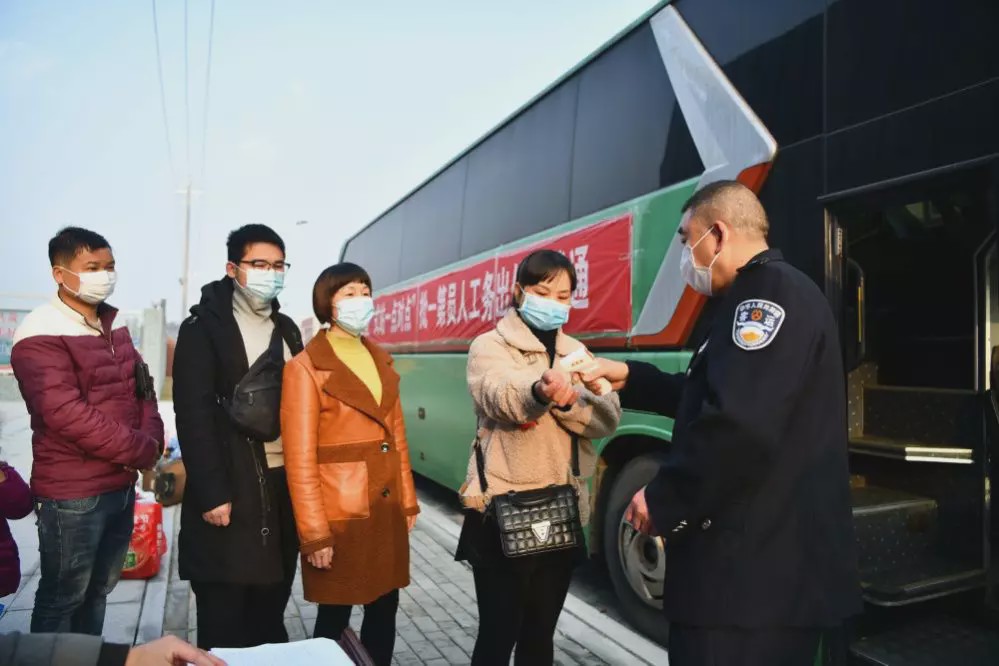
Migrant workers in Tongcheng County take their temperature before boarding the car
According to the relevant person of Tongcheng County Chengfa Public Transport Group, in order to ensure safety, the full load rate of the bus does not exceed 50%, the passengers are scattered and the vehicles are fully disinfected. All personnel must wear masks throughout the process.
Coincidentally, Xianning Chibi City Passenger Station has opened a "point-to-point" bus from Chibi to Yueyang, with a single fare of 40 yuan.
According to the relevant person of Chibi City Transportation Management Bureau, as a low-risk area, Chibi is also a large county (city) exporting labor services, and most people work and do business in Guangdong and Zhejiang; considering the problem of insufficient transportation capacity, after communicating with Yueyang, Hunan, from March 13, the bureau will send migrant workers who hold Hubei health code "green code" to Yueyang High-speed Railway Station in batches, where they will transfer to high-speed rail for travel.
It is reported that the county has put in 17 buses and disinfected them strictly according to regulations. The last row of seats is set up as a temporary isolation area, and the full load rate is controlled within 50%. Each passenger takes the temperature before entering the station and wears a mask throughout the process. At present, the county has transported more than 200 migrant workers to Yueyang High-speed Railway Station "point-to-point".
In addition, Qianjiang City has also adopted the form of chartered buses, transporting 72 migrant workers "point-to-point".
Hubei has gradually resumed public transportation in many places
At 15:00 on March 13, four buses departed from Yichang Bus Passenger Transport Center Station at the same time, and were sent to Xingshan, Zigui, Yidu and Wufeng respectively. This was the first batch of intercity buses that Yichang Transportation Group had opened after gradually resuming traffic operations.
On March 14, some taxis in Yichang were put into operation, and the number of people going out gradually increased. On the same day, approved by the Yichang epidemic prevention and control headquarters,Yichang City has resumed intercity shuttles from the urban area to eight counties and cities.
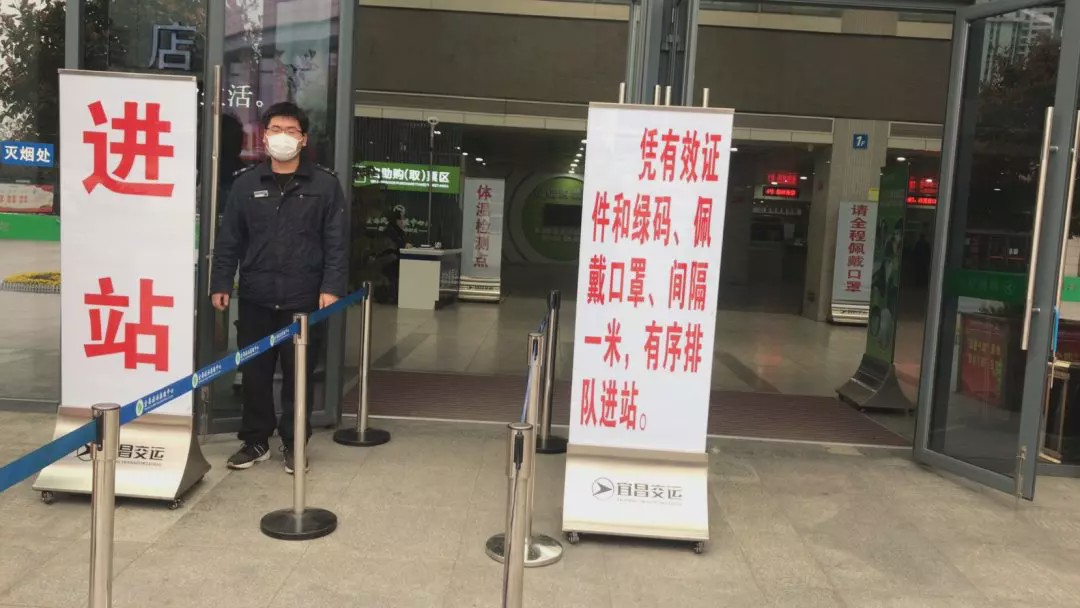
Yichang passenger station
Wang Yanbing, general manager of the Road Passenger Transport Division of Yichang Transportation Group, introduced that on the 13th, 9 intercity shuttles were sent from Yichang City to 4 counties and cities; on the 14th, 48 intercity shuttles were sent, with an average of 6 trips per county and city (3 trips each), and a total of about 2,000 passengers were sent. The company expects that the number of intercity trips will increase to 60 on the 15th.
Wan Pingyuan, the head of the road detachment of the city’s transportation bureau, said that Yichang City is gradually restoring the city-to-county intercity shuttle bus. At present, the number of vehicles in operation is about 20% of the usual. Passengers make reservations on the "Yichang Delivery Passenger Transport" WeChat official account, buy tickets with real names, and scan the code to verify boarding. After boarding the bus, they sit apart and wear masks throughout the process. Vehicles are not allowed to drop off passengers on the expressway. However, the intercity shuttle bus is only allowed to flow from the urban area of Yichang City to the urban area of each county, and between counties and cities.
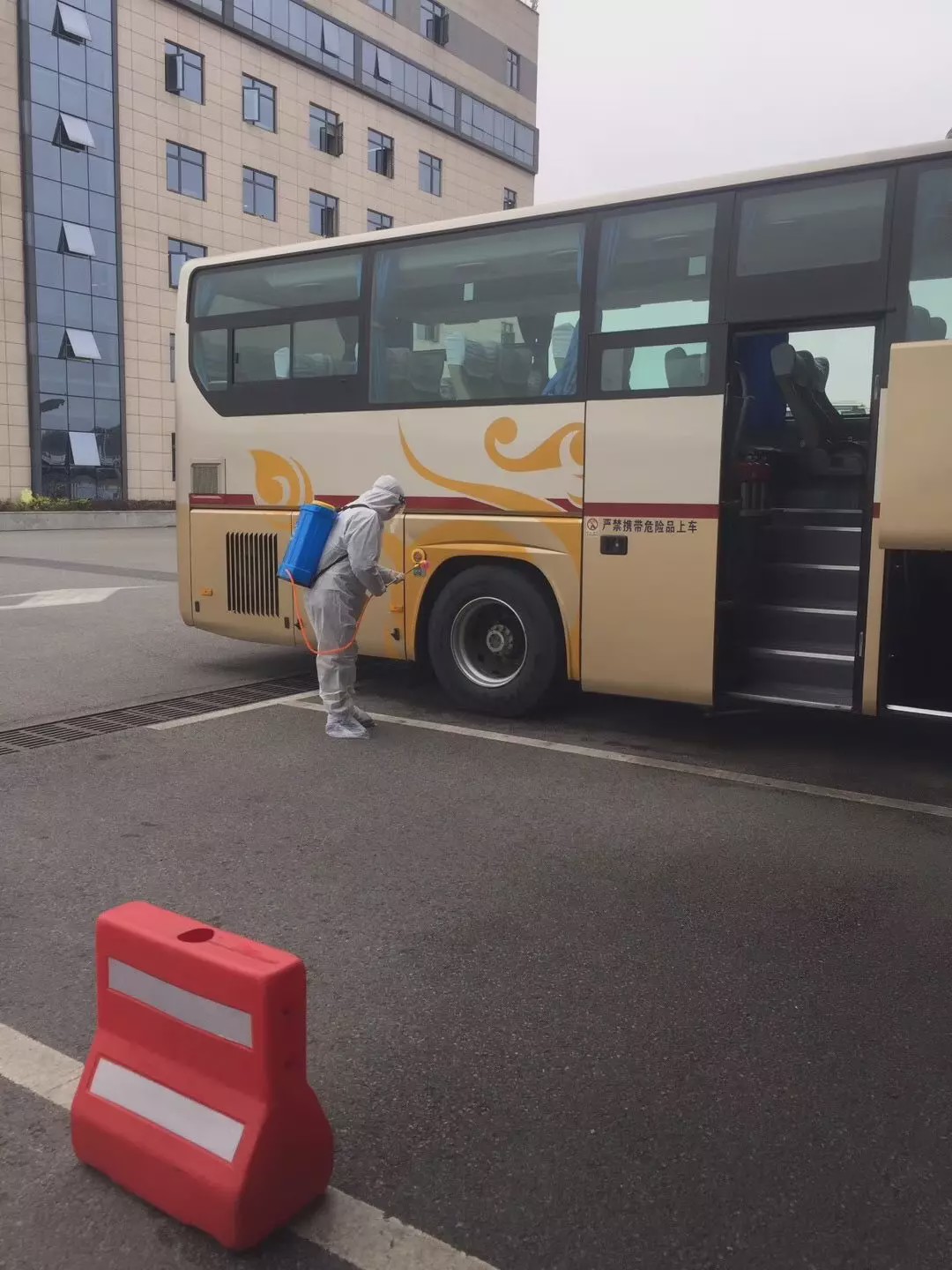
Yichang passenger station
In addition, all counties and urban areas in Yichang have gradually resumed urban and rural shuttles (buses) and village buses, but the number is significantly reduced than usual. On the first day of operation, there were not many passengers.
In terms of buses and taxis, as of 15:00 on March 14, Xiangyang, Huangshi, Shiyan, Xiantao, Qianjiang and other places have gradually resumed bus operations, and a total of 132 bus lines have been restored, including 47 in Shiyan, 39 in Xiangyang, and 21 in Daye. Yichang, Shiyan, Qianjiang and other places have gradually resumed taxi operations, operating more than 2,700 vehicles.
The relevant person in charge of the Provincial Transportation Department said that at present, all localities have formulated a plan to gradually resume public transportation travel. In the next few days, in addition to Wuhan, more cities and counties will gradually resume public transportation travel, and there will be more "point-to-point" and "one-stop" vehicles to escort migrant workers back to work.
More news > >
Wuhan: Customized bus transfers for returning personnel
On March 14, it was learned from Wuhan Public Transport Group Economic Development Company that according to the "Reply on Matters Related to Supporting the Resumption of Work and Production of Employees in Wuhan Development Zone (Hannan District) " of the Wuhan Municipal Headquarters’s Transportation Security and Environmental Remediation Group, on the same day, the company organized the first batch of 23 special buses and 23 drivers for the "customized special car" commuting rehearsal for units and enterprises in the two administrative areas of the Economic Development Zone (Hannan District) and Hanyang District. From March 16, it will officially provide orderly and smooth commuting services for the return of some enterprises.
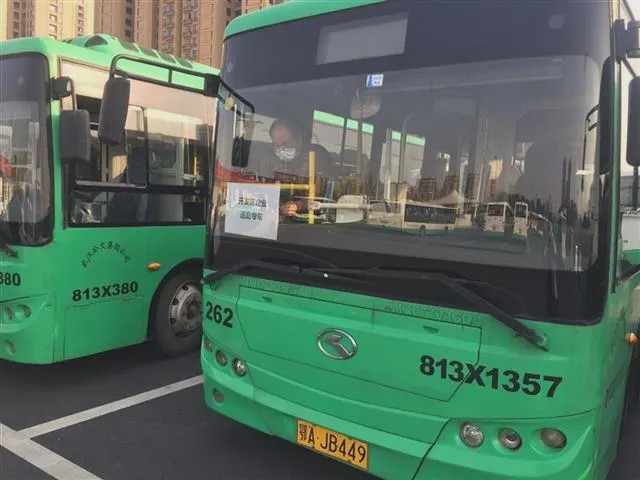
The company designs the travel routes and stops required for the next day according to the specifications one day in advance. If each line has 10 people, a special car can be reserved successfully, and the upper limit of each car is 50% of the limited number of passengers. The vehicle dispatcher of the bus company reasonably arranges the special car to wait for passengers at the designated station according to the number of reservations and the appointment time. During the commute, the company assigns volunteers to accompany the car to verify the identity and health status of the passengers. Customized services not only eliminate the process of getting on and off the bus halfway through, but also ensure that the people in the car are fixed and single, and realize that the stop of the commuter special car and the start of the shift time are "customizable".
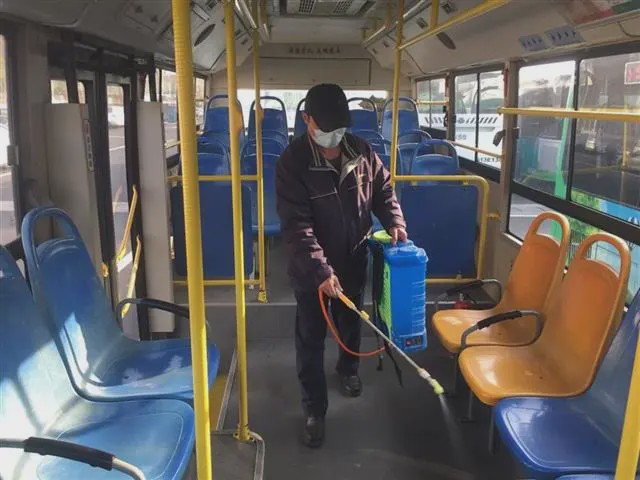
The first batch of 23 commuter cars resumed work strictly according to the requirements. The 23 drivers are mainly personnel who have served medical care and supermarket commuter lines in the early stage. Through the "actual combat against the epidemic" in the past few days, they have rich experience in vehicle disinfection, passenger identity investigation, and their own health conditions. Drivers participating in the operation sign a "Safety Commitment" and complete physical and mental condition tests before leaving the car. During the operation, the vehicles are required to be "disinfected one after another". Drivers wear their own protective equipment strictly, ensure that the car is fully ventilated during driving, and arrange seats for passengers at a safe distance to ensure the safety of the car environment and ride to the greatest extent.